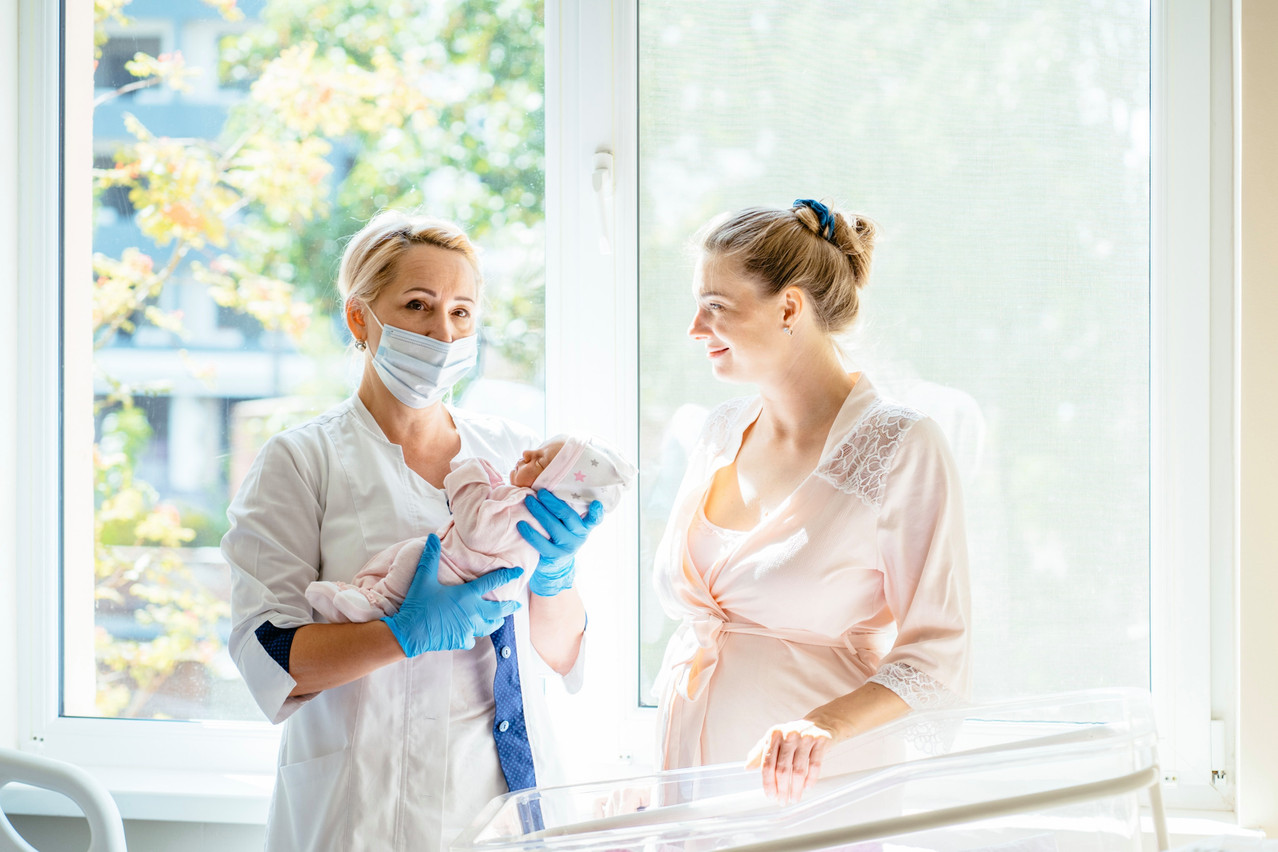Demanded for several years by professionals in the sector, Luxembourg now has its own four-year bachelor’s degree in midwifery sciences. The course will start next September at the University of Luxembourg. Until now, the country offered a three-year BTS degree (advanced vocational diploma, or brevet de technicien supérieur) to become a midwife. “Young people have to learn in three years what it takes foreign students four years to learn,” lamented the then vice-president of the Association luxembourgeoise des sages-femmes (ALSF), Yolande Klein, back in 2019. At the time, the midwifes’ association was calling for midwifery training to take place over four academic years.
Whilst the situation in this profession is less worrying--for the moment--, two-thirds of the country’s 230 or so midwives are cross-border workers, according to figures provided by the ALSF in 2022. The grand duchy counted 7,470 births counted in 2023, according to the national statistics bureau Statec, including 6,320 births to Luxembourg residents. That makes the hyper-dependence on neighbouring countries as prevalent as for other professions in the medical and paramedical sectors.
34.66 midwives per 1,000 live births
In a 2019 parliamentary reply, then-health minister (LSAP) explained that the density of midwives in Luxembourg (34.66 midwives per 1,000 live births) was slightly higher than that observed in France (29.59) or Germany (30.58). However, the figure for Belgium was much higher, at 65.35 midwives per 1,000 live births.
The new course at the University of Luxembourg will have 15 spots available. A secondary school leaving certificate is required for admission, and a B2 level in French and German and an A2 level in English are required. Fifty percent of the teaching will be carried out in French, 30% in German and 20% in English.
“Until now, the majority of midwives in Luxembourg were trained abroad, mainly in France, Belgium and Germany,” explains professor Ali Ghanchi, director of the bachelor of midwifery sciences. “However, the covid-19 crisis highlighted the risks associated with this dependence, particularly if borders are closed. The aim of this new bachelor’s degree is therefore to improve the recruitment, retention and professional autonomy of midwives in Luxembourg.”
A master’s degree in medicine pending
The University of Luxembourg has, since 2020, offered a bachelor’s degree in medicine, supplemented in 2021 by specialisations in general medicine, neurology and oncology. , the lack of a full curriculum is forcing students to pursue their training abroad, increasing Luxembourg’s dependence on the education and healthcare systems of neighbouring countries at a time when the need for healthcare professionals continues to grow.
The Health Simulation Unit (SimUL) at the university’s Faculty of Science, Technology and Medicine (FSTM) also enables students--and researchers in general--to work with equipment at the cutting edge of the latest technology.
This article was originally published in .
